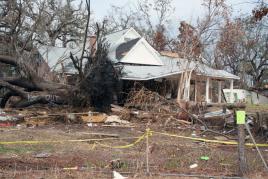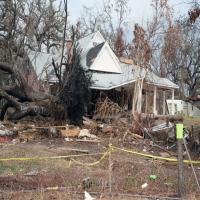New RUSH Program Offers Low-Income Housing Disaster Assistance

Low-income housing organizations are praising the development of a new Department of Housing and Urban Development (HUD) grant program to enable low-income households surviving disasters to maintain stable and affordable housing.
HUD announced last week that it was launching the new Rapid Unsheltered Survivor Housing (RUSH) program, which will provide long-term direct rental assistance, up to 24 months, and supportive services to low-income disaster survivors experiencing homelessness and those at risk of homelessness, through a network of housing providers and experts. Program funds can also be used to cover move-in expenses, outreach costs, and other urgent needs for individuals who are unsheltered. Along with those experiencing or at risk of homelessness, RUSH funding also will be available to those living in overcrowded homes, facing imminent eviction or experiencing another risk factor for homelessness.
“Too often, the Federal Emergency Management Agency (FEMA) relies on housing programs that are inaccessible to disaster survivors with the greatest needs, putting them at higher risk of eviction, displacement, and in the worst cases, homelessness,” said Diane Yentel, president and chief executive officer of the National Low Income Housing Coalition (NLIHC). “I applaud HUD Secretary Marcia Fudge for her leadership in launching RUSH to immediately fill the gap caused by FEMA’s inadequate response to the housing needs of low-income disaster survivors. This new program will prevent untold suffering and ensure that homelessness isn’t prolonged or newly created by disasters.”
NLIHC officials noted that for households with low incomes displaced by a disaster, FEMA housing assistance is often inaccessible and inadequate due to an overly complex application process, arbitrary deadlines, and the failure to keep pace with rising post-disaster rents. As a result, these households typically face long-term displacement and the threat of homelessness after a disaster. NLIHC added that individuals who were experiencing homelessness prior to a disaster are ineligible for most forms of FEMA assistance, including the Transitional Shelter Assistance Program and rental assistance.
HUD states that the RUSH program, which provides funding to recipient state and local governments under two allocations, will streamline the consultation and public participation requirements for the standard Emergency Solutions Grant (ESG) program, which normally requires extensive consultation and public participation to plan for and use funding. HUD has authority to reduce the requirements for the disaster. For example, for the first allocation, there will be no consultation or public participation requirements, and for the second allocation, recipients will have to provide for a five-day comment period rather than the normal 30-day period. The RUSH program also will eliminate the match requirement under the standard ESG program.
In response to damage caused in Florida by Hurricane Ian, HUD has allocated some $6.8 million in RUSH funding to the state and seven city and county governments. We’ll be interested to see how this program is used when future disasters hit.
Join us for our following Thompson Grants events:
Federal Grants Forum | Dec. 7-9, 2022 | Fort Lauderdale, Fla.
Nonprofit Legal, Finance, and Grants Conference | April 6-7, 2023 | Washington, D.C.



